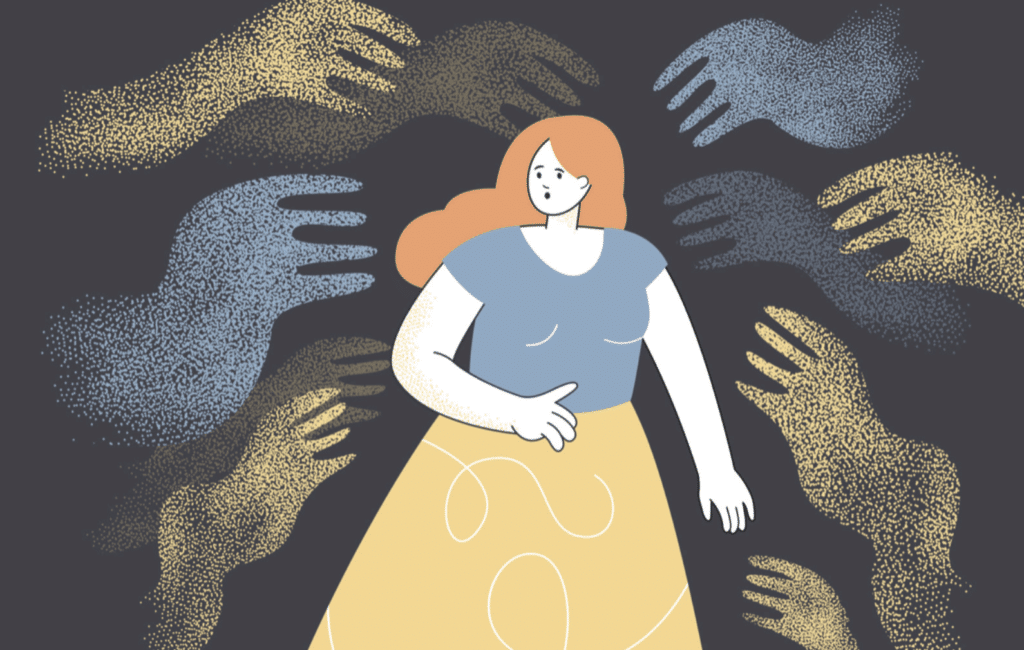
THE BOTTOM LINE
Sleep paralysis causes hallucinations during temporary muscle paralysis
You may feel awake even though you’re still dreaming
Identifying the cause and treating it can reduce episodes
Picture this: you wake up but you’re unable to move your entire body, maybe you see a figure or something in the corner of your room…maybe you feel scared, but you’re unable to scream out or get away. Yikes! Doesn’t that sound awful and terrifying? If you have ever had this experience, or maybe something similar, you’ve probably had sleep paralysis.
What is sleep paralysis?
This is arguably the most interesting parasomnia because those who have experienced it often report differing and sometimes unique events.
It is considered a REM-related parasomnia because it occurs during stage 4 sleep (REM sleep).
It often occurs shortly before waking up and research suggests this creates a “mixed state of consciousness”. This mixed state of consciousness means that you may feel awake even though you are still dreaming.
Sleep paralysis is characterized by:
- Atonia: Temporary muscle paralysis. This always occurs during REM sleep, however, someone with sleep paralysis has awareness of the muscle paralysis.
- Hallucinations: Research has found that 75% of sleep paralysis episodes involve hallucinations, which fall into one of these three categories:
- Intruder hallucinations: These involve the presence of someone or something which is not actually there in reality. You might see a figure standing in the corner of your room or hear someone pounding on your door or whispering in your ear.
- Chest pressure hallucinations: These involve feelings of suffocation. They are commonly reported along with intruder hallucinations as many have reported feelings of someone or something sitting on their chest.
- Vestibular-motor (V-M) hallucinations: These involve feelings of movement or an out-of-body experience. You might feel like you’re flying or being pushed out of bed, or you might float above your body and see yourself still sleeping peacefully beneath you.
- Intruder hallucinations: These involve the presence of someone or something which is not actually there in reality. You might see a figure standing in the corner of your room or hear someone pounding on your door or whispering in your ear.
Episodes typically only last for a few minutes, but the combination of atonia and (often very frightening) hallucinations can be distressing enough to cause anxiety about falling asleep. In fact, approximately 90% of sleep paralysis episodes are reported to be associated with fear.
How common is it?
8% of people will experience an episode at some point in their life.
Can it impact my health?
It’s unlikely to have any direct impact on your health, although the symptoms can sometimes cause feelings of distress or shame if you’re not aware that this parasomnia is fairly common and does not mean you are having a psychotic break.
What causes sleep paralysis?
The cause is currently unknown, and many studies have provided some theories, such as:
-
Obstructive sleep apnea (OSA): Research has found that 38% of people who have OSA report episodes of isolated sleep paralysis.
-
Insomnia: Symptoms of insomnia have been found to be associated with this parasomnia, and there is a theory that this can create a vicious cycle of insomnia and sleep paralysis.
-
Jet lag or shift work disorder: Having an out-of-whack circadian rhythm, which can be caused by sleep disorders such as jet lag or shift work disorder, can put you at a higher risk.
-
PTSD: Anxiety disorders such as post-traumatic stress disorder are thought to be the cause of some episodes.
Can it be treated?
It is so important to speak to your doctor to determine if your sleep paralysis is the cause of OSA, because sleep apnea can be a very serious health issue.
The best way to ensure that sleep paralysis doesn’t continue to take over your sleep is to improve your sleep hygiene – making sure you have a healthy sleep-wake schedule, a great sleep environment, and a consistent bedtime routine can help with this.
How can I make sure my sleep-wake schedule is healthy? The best way to ensure that you have a healthy sleep-wake schedule is to keep consistent wake and sleep times. That means trying to make sure you are going to bed and waking up at the same time every day.






